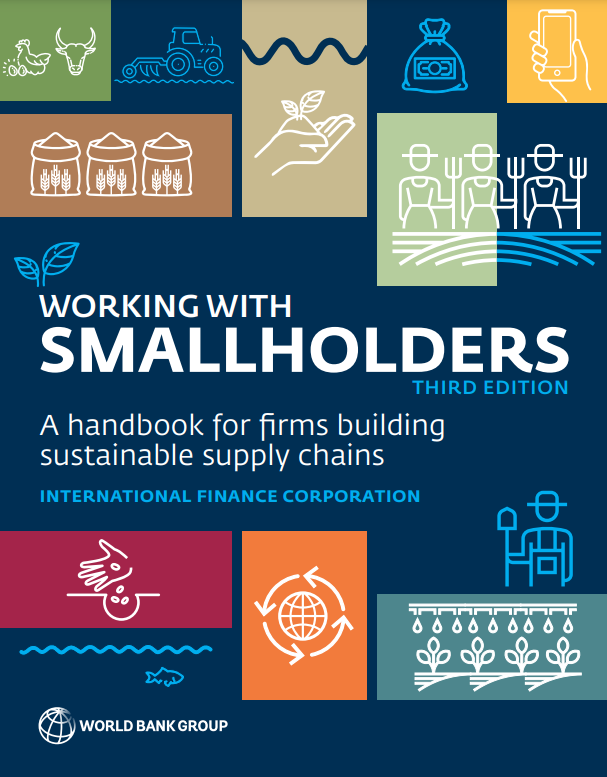Working with Smallholders: A Handbook for Firms Building Sustainable Supply Chains (Third Edition)

A number of global trends, such as concurrent rises in incomes and urbanization, are driving the increased consumption of meat, dairy, and biofuels. Meeting the demand for products will require considerable increases in global production, particularly in South Asia and Sub-Saharan Africa, where smallholder farming predominates and yields remain low. At the same time, it will be essential to promote improved food quality, to reduce negative impacts on health, while additional initiatives must address how to reduce food losses. Climate change is bringing further stressors. These challenges also present opportunities to help smallholder farmers boost their productivity by facilitating better access to inputs, technology, knowledge, financing, and markets. Agribusinesses are increasingly working with smallholder farmers in low- and middle-income countries to secure agricultural commodities, which help to boost rural incomes and economic growth. Smallholders also represent a growing market for farm inputs, information, and financial services.
‘Working with Smallholders: A Handbook for Firms Building Sustainable Supply Chains’ shows agribusinesses how to develop more sustainable, resilient, and productive supply chains and the substantial impact of doing so on development. The book compiles innovative solutions and cutting-edge ideas to meet the challenges, and illustrating these points through a variety of case studies from initiatives around the world. This third edition builds on the lessons learned and provides updates in leading trends and technologies from those provided in the second edition published in 2018 including the potential for digital technologies and increased demands for sustainable farming.
Although written principally to outline training and assistance needs and opportunities for the private sector — whether in high-income or low- and middle-income markets — the handbook may be useful to the staffs of governmental or nongovernmental agricultural development programs working with smallholders, as well as to academic and research institutions.